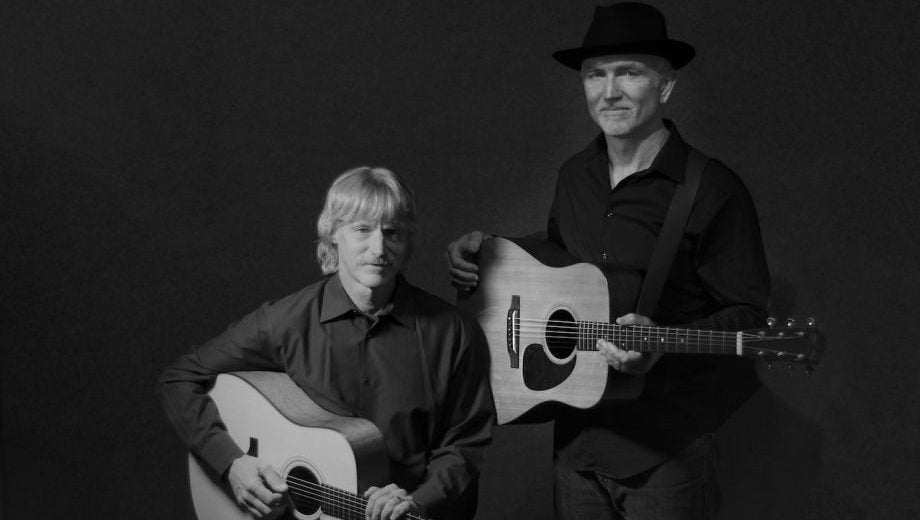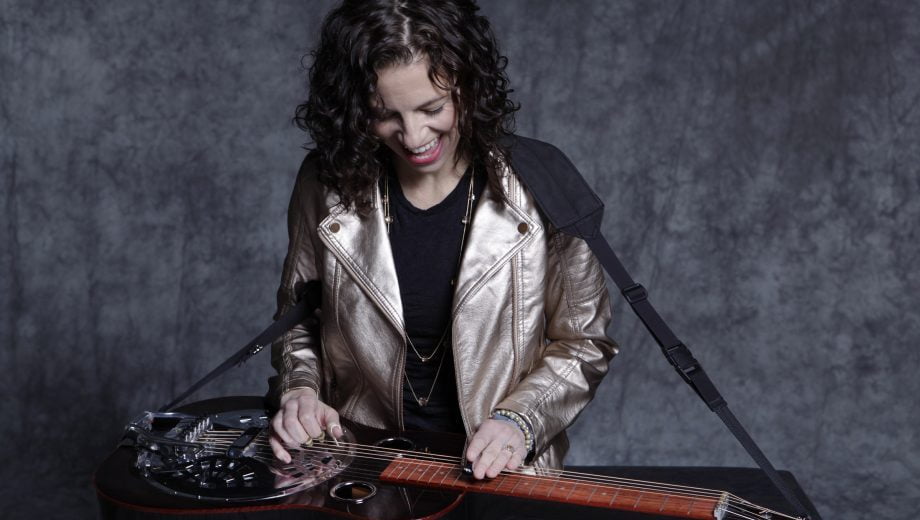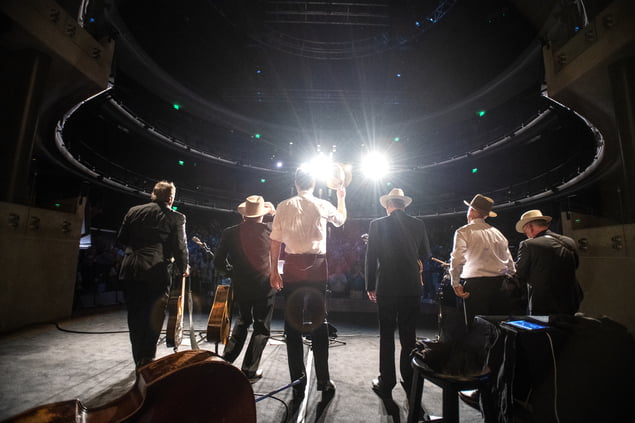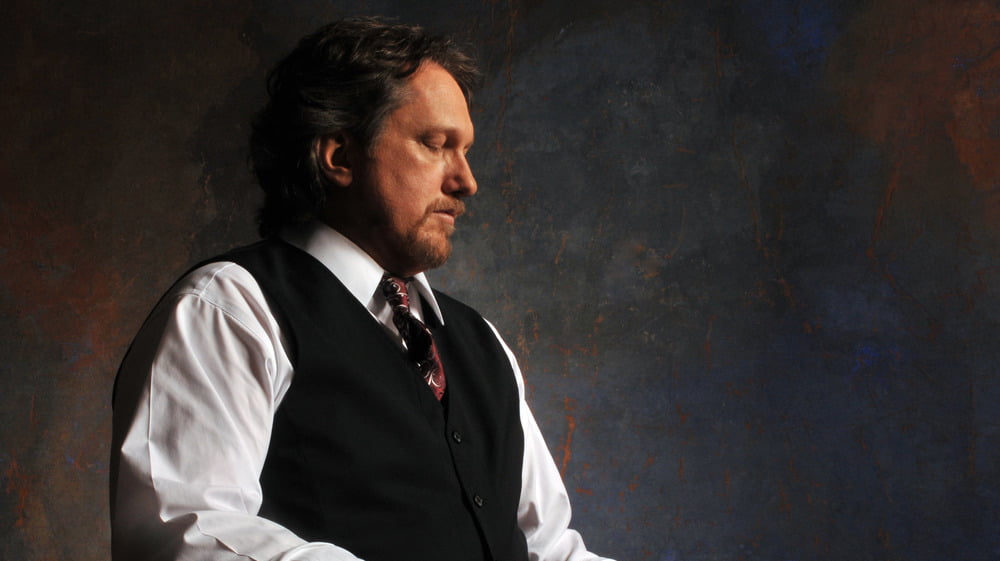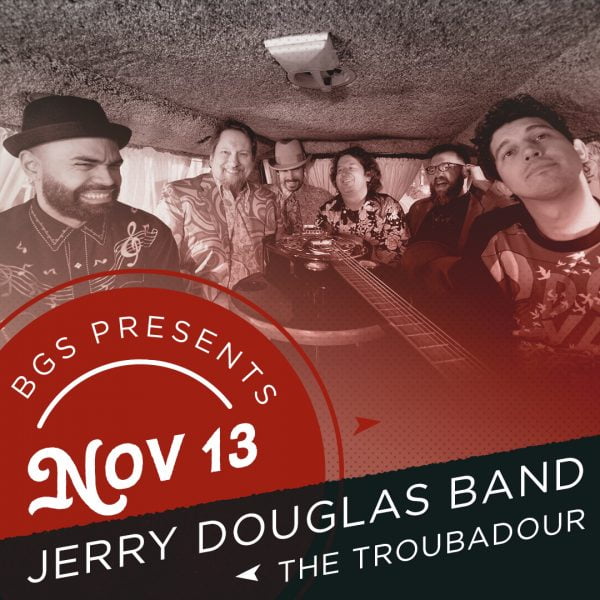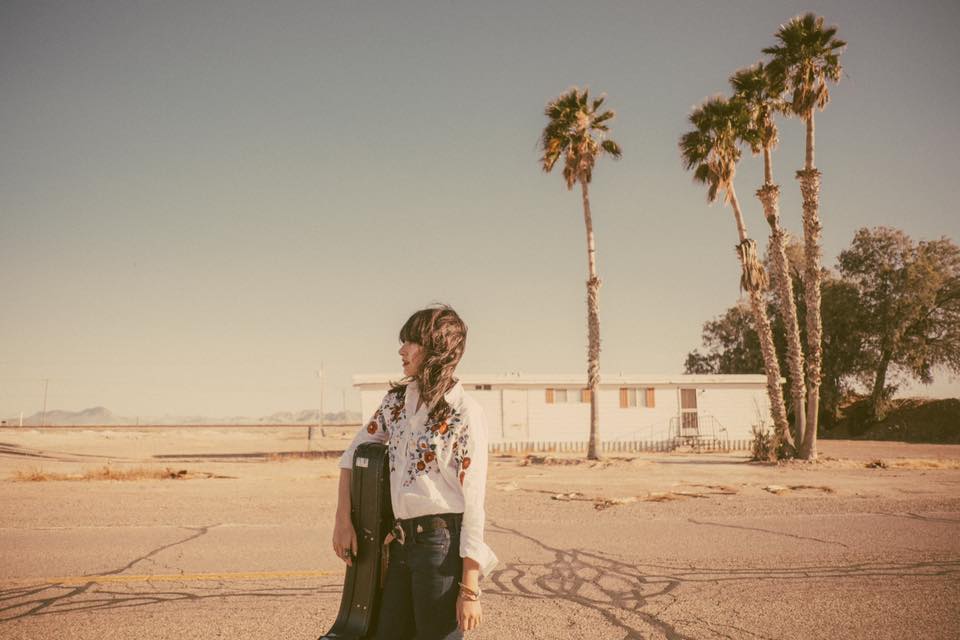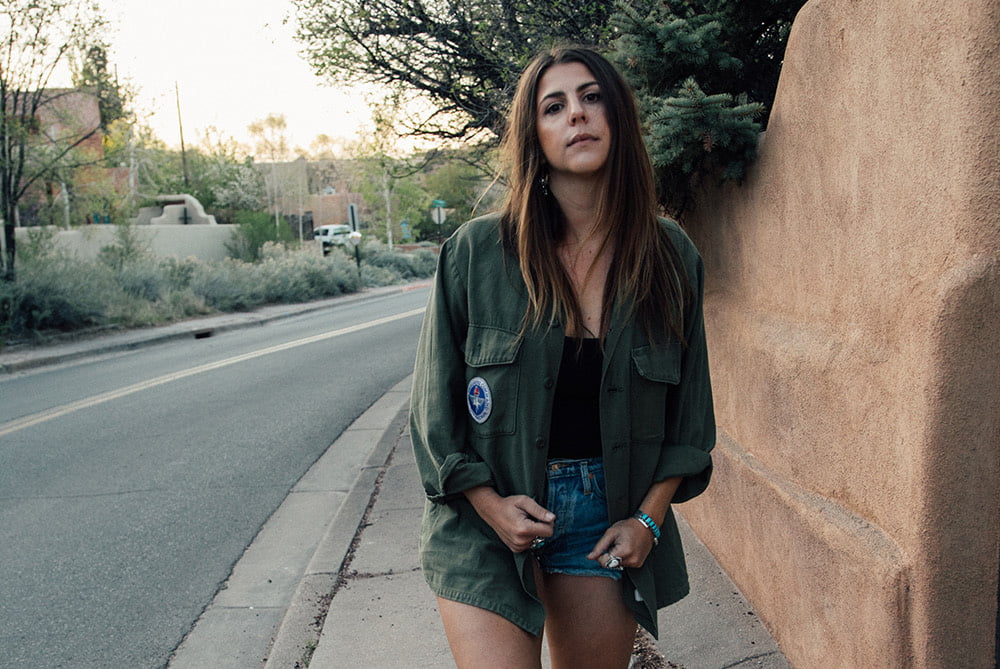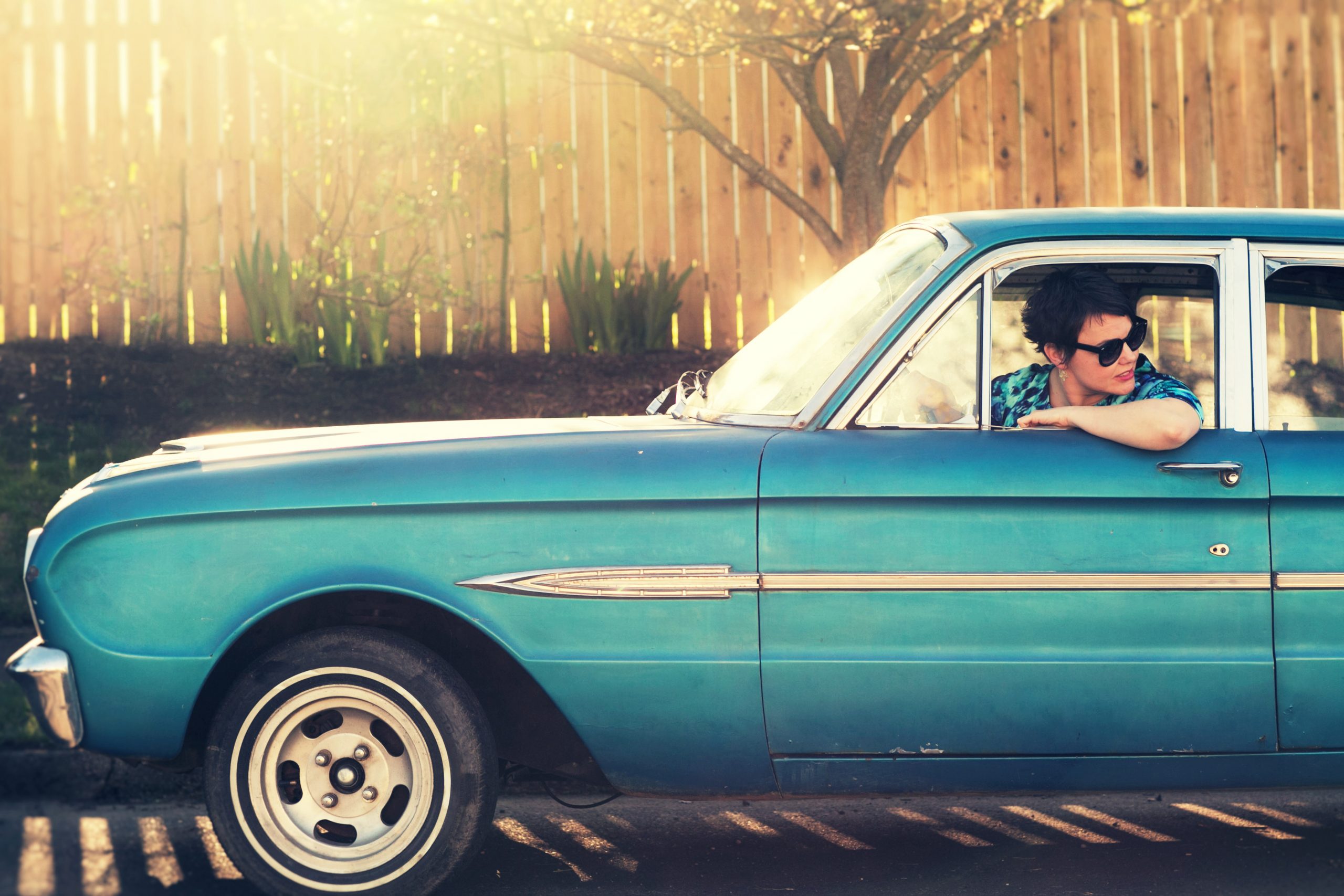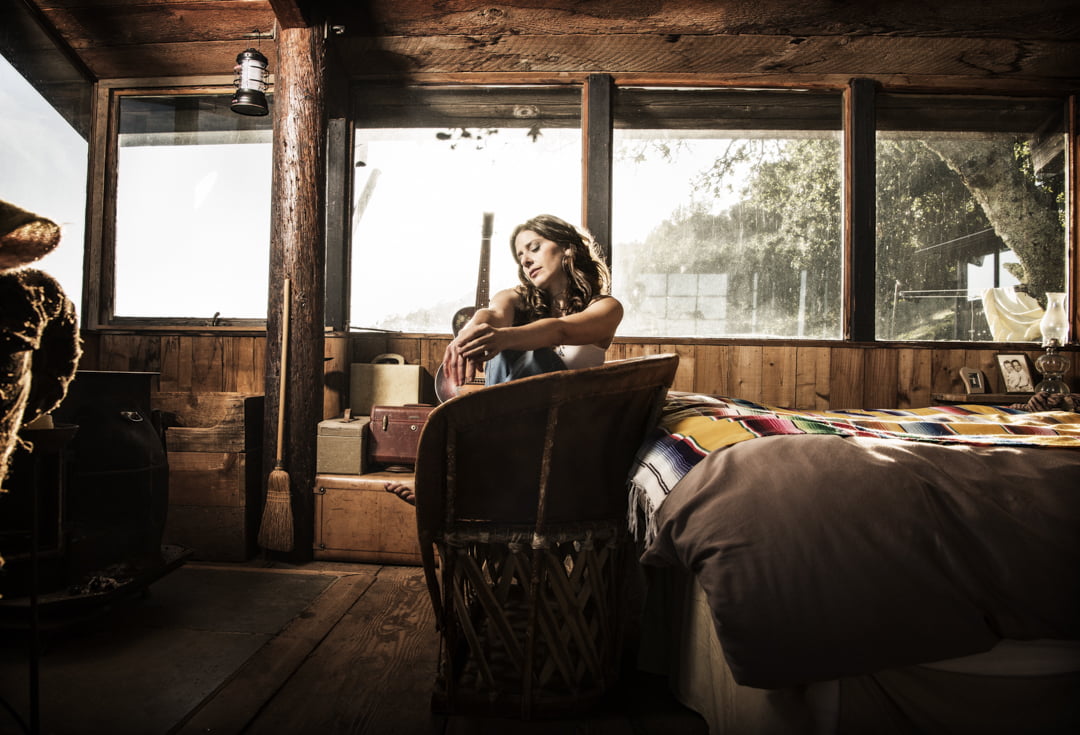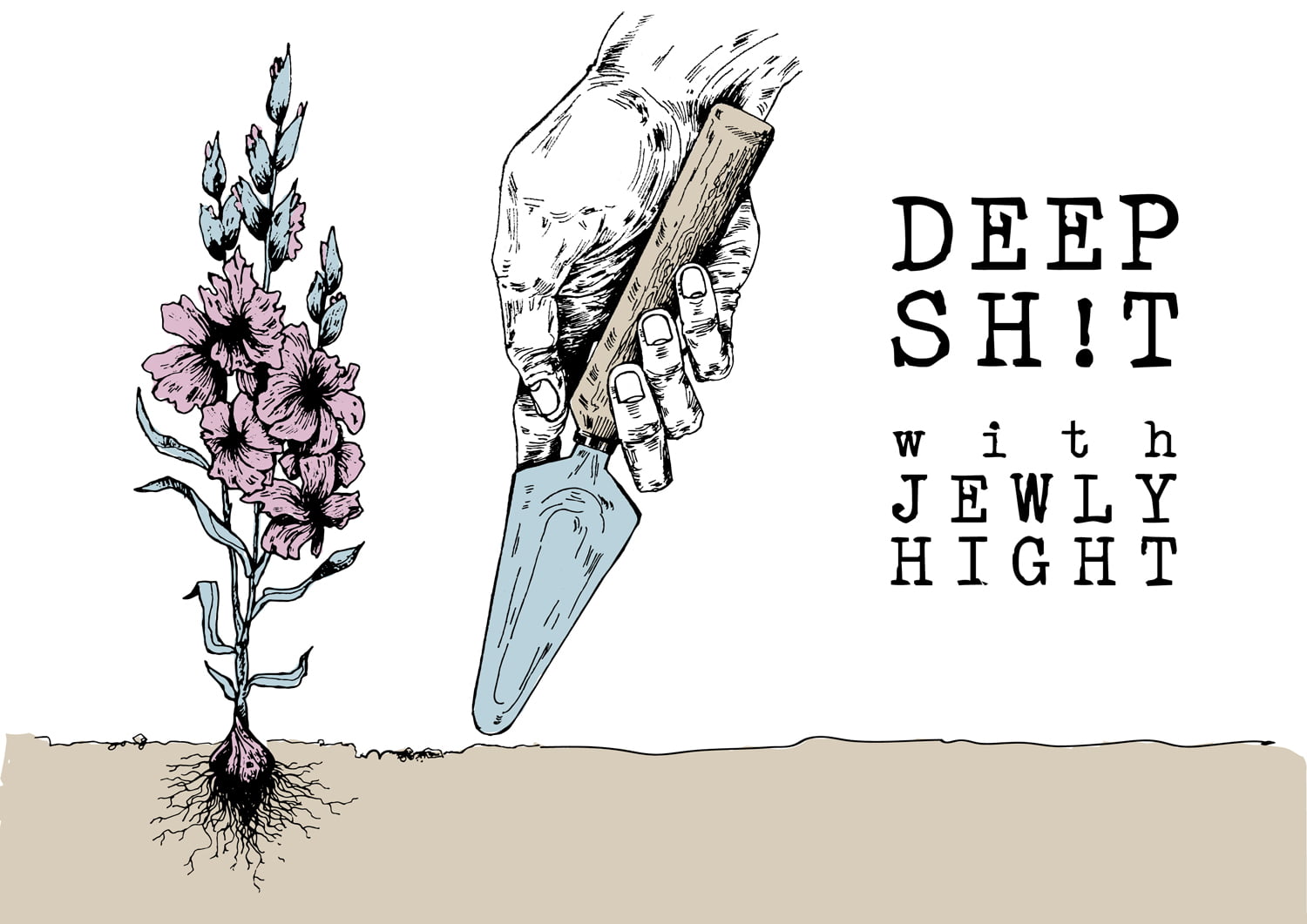“We’re probably just blocks from each other in Nashville,” Shawn Camp tells Trey Hensley once they’ve both joined the conference call line. We can hear the faint sounds of Camp going about his morning routine, rustling around in a kitchen cabinet, and pouring himself a cup of coffee.
Hensley gently corrects the assumption: “I’m actually out in L.A. today. We’re playing tonight at a festival. So I’m just getting around this morning, too.”
Even from halfway across the country, the two pickers, singers, and songwriters share close proximity in their musical backgrounds. Camp, the older and more decorated of the two, and Hensley, the promising 20-something, were youthful devotees of some of the same old country and bluegrass records, and their listening provoked the same response: the urge to pick up an instrument and learn the stuff. Having a firm yet flexible grasp on tradition readied them for the variety of musical situations they've found themselves in since — including Camp's Flatt & Scruggs-conjuring supergroup the Earls of Leicester and Hensley's wide-ranging roots duo with dobro master Rob Ickes, both of which have recorded new albums.
On the phone, it takes no time at all for Hensley and Camp to start trading mutual admiration with the modesty of a couple of small-town Southern boys.
You each currently count one of the world’s leading dobro players as a band mate. I’m, of course, talking about Jerry Douglas in the Earls of Leicester and Trey’s duo partner, Rob Ickes. And those two guys have even made all-dobro albums together. Is this is first time your paths have really crossed?
Shawn Camp: I met you at the Station Inn, Trey. Rob sent out an invitation when you guys played over there for the first time, and that’s the first time I ever heard you. Evidently, you’ve been around a lot longer than that. You’re really a talent. Man, I was blown away by your pickin’ and your singin’.
Trey Hensley: Aw, shoot. I sure appreciate it. I remember the night meeting you out there. I’ve been a fan of yours for a long time.
SC: Are you on tour out there with Rob?
TH: Yeah, we’re playing a few gigs out here in California this weekend.
SC: Well, hey I wanted to ask you, did you write “My Way Is the Highway”?
TH: Yeah, I sure did.
SC: Good song, man.
TH: Thanks. I appreciate that very much. I’ve not written a whole lot, but I’m trying.
SC: Did you write it by yourself?
TH: Yeah, I sure did. I wrote it several years ago and just kind of threw it out there to Rob one day.
When you were both young and green, you got a taste of what it was like to be welcomed into the lineage of bluegrass tradition by first generation bluegrassers. Trey, you were just a kid when Marty Stuart brought you on the Opry to do a Flatt & Scruggs number, and Earl Scruggs showed up . There’s YouTube evidence of that. And Shawn, you originally came to Nashville for a sideman gig with the Osborne Brothers. I was unable to find YouTube evidence of you playing with them, but I don’t doubt that it’s true.
SC: There’s probably some evidence out there floatin’ around. We played on a Hee Haw episode, and I think we did a few little TV shows when I was with ‘em. I was only with ‘em about six months. I was just a green cushion fiddler between Blaine Sprouse and Glen Duncan, who they wanted when they hired me, I think. I was 20 years old when I moved to town from Arkansas. They heard me out on the road. I was working with a band called Signal Mountain, a bluegrass band out of McAlester, Oklahoma. They saw me playing and wanted me to join them for a while. So that’s how I kinda got my foot in the door in Nashville.
What did receiving that little bit of approval from first-gen legends do for you?
SC: It was an amazing little trip. I’d been growing up listening to their Decca records from the early ‘60s that my dad had. They were of the caliber of Merle Haggard or somebody, at the time. In my mind, they were at that level. So, for just a green kid dropped in the middle of ‘em, all the sudden I’m in overdrive and we’re flying down the interstate. It was exciting for me.
Since you brought up Merle Haggard … Trey, when you were a kid playing around East Tennessee, you went from playing bluegrass to playing Haggard songs with string band instrumentation to plugging in your Tele. You kept shifting in style and material. What did you learn about blending different strains of tradition?
TH: Everything that I was doing was reflective of what I was listening to. The first records I took my own money and bought were Flatt & Scruggs at Carnegie Hall! and Flatt & Scruggs did the Songs of the Famous Carter Family. For the first probably four or five years that I played music, that was mainly what I did — traditional bluegrass music. And yeah, I had the opportunity to play with Marty and Earl and do a song off of the Carter Family album on the Opry not long after I got started. I drew influence from Flatt & Scruggs at the end [of their partnership], which was not one of their most popular eras. They were doing Dylan stuff and everything else. So there was always the influence of kind of breaking out [of the traditional mold].
But there are these definitive moments, like a Merle Haggard record — I kinda knew that that’s what I wanted to do, at that point. So I started doing more country stuff. And then I got the Buck Owens record Carnegie Hall Concert and, that first guitar solo on “Act Naturally,” as soon as I heard that, I went out and bought a Tele and started working on that. When I was playing around where I grew up, a lot of people had grown accustomed to hearing a bluegrass band. It was never like I was doing anything totally different, but going from acoustic to electric did kinda jar a few people’s musical taste. I guess 2008, that’s when I started playing more electric stuff and opened up for Charlie Daniels. I liked doing electric stuff, but I like doing the acoustic stuff maybe a little more.
Shawn, you were talking about your earliest years in Nashville. You’ve ranged far and wide since then in your songwriting and performing careers, from a rockabilly bluegrass duo to the roots supergroup World Famous Headliners and the Earls of Leicester. What was appealing to you about the idea of reviving the Flatt & Scruggs repertoire with this band?
SC: It just had always been in my soul, really. I listened to [Flatt & Scruggs] Live at Carnegie Hall!, too, and had several other Flatt & Scruggs records when I was a kid. I grew up with bluegrass. I just loved Flatt & Scruggs, and it just seemed like it would be a fit. Jerry Douglas called me, and he’d been doing some stuff with Johnny Warren and Charlie Cushman, making banjo and fiddle records with them. He said they were doing a Flatt & Scruggs band and wanted to know if I wanted to be Lester. And I said [goes into his lazily drawling Lester Flatt imitation], “Well, ah, absolutely.”
[Laughter]
SC: So I did. I jumped in there. It’s been fun.
You have a distinct vocal sound. People can easily recognize Shawn Camp’s voice. So what does it require of you to play Lester Flatt?
SC: I just to try to bend the notes the way he did. It kinda adds to the sound. The whole band kinda works off of that tension of those notes being bent. I try to get the phrasing as close to the way that Lester did as possible, but I’m never gonna sound exactly like him. I’d love to, for this show, but it’s never gonna happen. But everybody’s trying their best to fill the shoes of the man that was in the Foggy Mountain Boys, so if I didn’t do that, I wouldn’t be doing my part, I don’t think.
I’ve seen you perform in a lot of different kinds of contexts, but I don’t think I’d ever seen you more dressed up than when I caught an Earls show at the Ryman. Was that part of it a hard sell for you? Why is the look essential to doing this stuff?
SC: Actually, I’m probably the one that kept at everybody, saying, “You know, if we’re gonna do this, we’ve gotta look the part.” You can’t do it without the ties. You can’t do it without, at least, the suit. Flatt & Scruggs wore suit jackets. It looked like a good uniform. There was just a little bit of legitimacy to ‘em, you know?
About 25 years ago, I bought an old string tie — a Colonel Sanders tie — at a junk store, still in the package. It had rhinestones on it. When I bought it, I thought, “Man, one of these days, maybe I’ll be in a band that I can actually wear this old thing.” So last year at IBMA, when we were up for several awards, I took that thing out of the package for the first time.

Trey, in your duo with Rob, there’s no set stage wear, although I did notice that the cover of your first album depicted you in a rootsy, rural scene, both of you leaning up against a rusty old truck.
TH: [Chuckles] Yeah, it kinda varies. But I love what you guys are doing, Shawn, from the look on down. It’s awesome.
SC: Well thank you, man. It’s easy to do it when everybody’s playing the part. If one spoke fell out of the wheel, we’d be in trouble.
Trey, you’d been a solo front man leading your own band for years. For just the past couple of years, you’ve been paired with a world-renowned musician. I imagine that, on some of the first tour dates you played with Rob, he was the draw and you were the unknown quantity. Is that pretty much what it felt like?
TH: Oh yeah, absolutely. My wife and I had talked about moving to Nashville for a few years. She was looking at some jobs in Nashville. Right after I’d recorded on the Blue Highway album, I had this conversation with Rob. … Rob called me up and was very nice, complimenting what I was doing and said if I ever wanted to move to Nashville and pick some, that would be great. So that just kinda gave me enough courage. It’s still cool to go to the gigs. There’s people there that know Rob, and it’s nice to play in front of fresh ears.
Shawn, you’ve been most consistently recognized for your songwriting, since you’ve had such success in that arena. What does a celebrated songwriter bring to material that’s much older than him, to songs like “The Train That Carried My Girl from Town,” “Just Ain’t,” and “I’m Working on a Road”?
SC: All I know is, it’s a nice thing to do, for me, as far as I don’t feel the pressure of doing my material. I think the ego kind of disappears, to a degree, within the band. It’s like everybody’s just trying to do something somebody else did the best that they can do. It’s just more fun. It takes a little bit of the alpha dog pressure off of your shoulders. You don’t have to lead the pack so much as just try to be a part of the thing.
A lot of times, when everything’s hinging on the words that you’ve come up with, the show is all leaning on that. You kinda feel like you’re an old rooster on a chopping block: You’re about to get it. You never know if it’s gonna work or not, so you’re kind of vulnerable.
These songs, this material, it’s been tried and true, and you can feel the power of those old songs. It’s a departure from the same old, same old that I’ve had to do here in Nashville. But I’m not done doing that. I want to come back to it and make a regular record soon.

Trey, you and Rob aren’t performing an established canon. You’re casting a fairly broad net with the material you’re assembling alongside your originals. On The Country Blues, you cover Elton John, Ray Charles, and Sonny Boy Williamson along with Merle Haggard and Charlie Daniels. What appeals to you about reuniting these parallel, rooted traditions of country, blues, and R&B?
TH: Even though there’s a lot of different material on the record, I don’t really feel like any of it feels misplaced or anything. When we’re picking songs, even just for a jam session, it all kinda fits — and, if it doesn’t fit, we can recognize that pretty quick. That Elton John song is from Tumbleweed Connection, which has always been one of my favorite records. I kinda threw it out there one day when we were picking, and it pretty much fell into place the way we recorded it.
I’m a big fan of so many different kinds of music. And a lot of the songs, even though they’re by well-known people, it’s kind of important to go on the more obscure side of things. If we’re doing an Elton John song, we sure don’t want to cover “Rocket Man.” Well, there are a few exceptions. We did “Friend of the Devil,” the Grateful Dead song, which is pretty popular, but there’s a totally different spin on it.
SC: You guys sound like a band. I mean, just the two of y’all playing together, it sounds like a band. You guys are so tight. And Rob’s playing these harmony notes against you. It’s a really full sound. I wanna just tell you that. I know you know that, but I want you to know that I know that. You know what I mean?
TH: [Laughs] I sure appreciate that. That is very nice of you to say. This record’s primarily a band, but playing in this duo thing, it’s kinda fun to jump on the bass part or to be able to play something that sounds like a drum, just fill it up the best that we can.
The new album feels very contemporary and jammy, like you were experimenting with guitar tones and effects. Is that what the recording process was like?
TH: Yeah, that’s exactly how it was. We did three or four takes of each song and, for the most part, there would be a whole take that we’d use on the record, but there might be a guitar part from a different take thrown in. We all played something different each time, because there was really no written script. We went in with no charts, no anything — just four main guys, and we had a couple different fiddle players and Ron Block played banjo on a tune. I think that came across: that we were just playing music. Although we were working on an album, it didn’t come across like we were working on an album. We were just kinda having fun.
I think it could work at a jam band festival.
TH: I’m a big Grateful Dead fan. A lot of the jam stuff from my angle comes from that. It was just us kinda jamming on what we like.
Shawn, I’ve seen the Earls circle up around one mic to perform live, like the Foggy Mountain Boys did. How does your approach to recording compare to what they did? Are you using vintage gear and production techniques?
SC: We’re recording just about the same — exactly as they would’ve done it. We’re using old Neumann mics from the ‘40s. On this new album, we used an RCA 77, which once was Earl Scruggs’ banjo mic, that I bought last year. We’re using old, vintage equipment. We kinda cut in a line with the mics kinda set up the same as we work ‘em on stage. The guys on the outside of the line may have, at times, used headphones, but mostly we’re not using headphones. We wanna hear each other naturally around the mics. And there are no overdubs. We didn’t fix anything. So if you hear anything on that record, that’s just the way we played it. It’s not, like, Pro Tools edits and stuff like that going on.
Shawn, you’re a couple of decades further down the musical path than Trey is. Got any good advice for him? Or any bad advice?
SC: I really don’t know what to tell anybody these days. I know the music business has gotten really weird in Nashville. I know that nobody’s making much money. Somebody ran up to Roger Miller one time in an airport and said, “Hey, you got any advice for an up-and-coming songwriter in Nashville?” He said, “Yeah. Keep your change in one pocket and your pills in the other, because I just took my last 37 cents.”
[Laughter]
SC: That was probably good advice. I think Trey just needs to keep doing what he’s doing. You’re doing great, brother. I’m glad you’re doing it. I’d love to hear y’all over the radio every time I turn it on. You’ve got a great voice, reminiscent of Keith Whitley or somebody. I’d love to hear more of it. Love your songwriting, too. Just keep up the good work. That would be my advice.
TH: Man, I sure appreciate it. I’m looking forward to hearing y’all’s new record. The first one, it’s been in my truck since it came out. So I’ll have to head down to the store and pick up the new one, as soon as it comes out.
SC: Let me know when you’re ready to visit one of these days here in Nashville, and we’ll see if we can’t come up with a song together.
Illustration by Abby McMillen. Rob Ickes and Trey Hensley photo by Stacie Huckeba. The Earls of Leicester photo by Anthony Scarlati.
